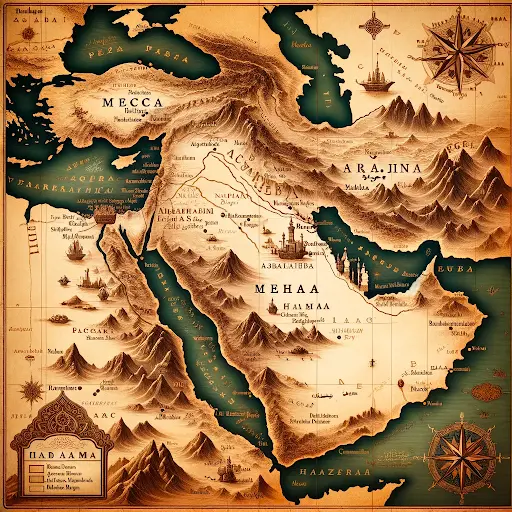Muhammad: A Biography of the Prophet
Updated: 31 January 24
6
Introduction
In biographical literature, Karen Armstrong’s “Muhammad: A Biography of the Prophet” stands out as an important and illuminating work. This book is not only a life history of the Prophet of Islam but also an examination of the social and political life of seventh century Arabia. Written by noted author and religious scholar Karen Armstrong, readers get an insightful look at Muhammad’s life and legacy.

Author’s Background
Karen Armstrong is a well-known author and lecturer on religious issues. He is primarily known for his work on comparative religion, and has written extensively on Islam, Christianity, and Buddhism. His qualifications included a deep understanding of religious and historical issues, gained through years of research and study.
Armstrong’s previous books, such as “A History of God” and “The Battle for God,” have been widely praised and acknowledged for their scholarly depth and accessibility
Highlights of the study
Summary
Armstrong’s “Muhammad” delves into the life of the Prophet, from his beginnings in Mecca to his role as a founder of Islam. The book carefully balances the religious, political and personal aspects of Muhammad’s life and offers a comprehensive perspective without delving into theological discussion

Essential Research
Armstrong’s story is respectful and objective, and presents a nuanced portrait of Muhammad. He tackles the confusion and controversy surrounding his life with scholarly insight. However, some readers will find the book’s focus on historical context rather than theological commentary a departure from traditional Islamic contexts.

Personal Thoughts
Reading Armstrong’s biography of Muhammad is an enlightening experience. It challenged many previous theories and provided a complete understanding of the history and founders of Islam.

Suggestions
The book is ideal for readers interested in religious biography, Islamic history or seeking a deeper understanding of one of the most influential figures in history. It is especially valuable to readers who appreciate the historical context of religious texts.

conclusion
Karen Armstrong’s “Biography of the Prophet Muhammad” is a well-researched and well-written biography that provides a comprehensive and balanced view of the Prophet of Islam and is a must for those interested in history, of the interaction between religion and culture.

FAQs
What makes Karen Armstrong’s “Muhammad” different from other biographies?
Armstrong’s book is notable for its focus on historical context and its objective, scholarly approach, which provides a balanced view of Muhammad’s life without delving into theological discussion.
Is the book suitable for readers unfamiliar with Islamic history?
In any case, this is a good starting point for those new to Islamic history, as Armstrong explains complex historical and religious concepts in an accessible way.
Does the book cover the entire life of Muhammad?
Yes, it covers his life from the early days in Mecca to his role as the founder of Islam, including personal and political aspects.
How does the book address the controversy surrounding the life of Muhammad?
Armstrong addresses arguments with scholarly insight, focusing on historical context and avoiding theological biases.
Will this book appeal to readers of all faiths?
Yes, it is written in an accessible and informative style for readers from all walks of life interested in historical and religious figures.
Reviewer’s Author Bio
In My Review Book (MRB), our team’s diverse backgrounds in religious studies, history, and literature allow us to move from a circular perspective to books like Armstrong’s “Muhammad.” Our commitment to in-depth research and understanding the cultural significance of each document ensures that our research is not only informative but also credible.
Please Write Your Comments